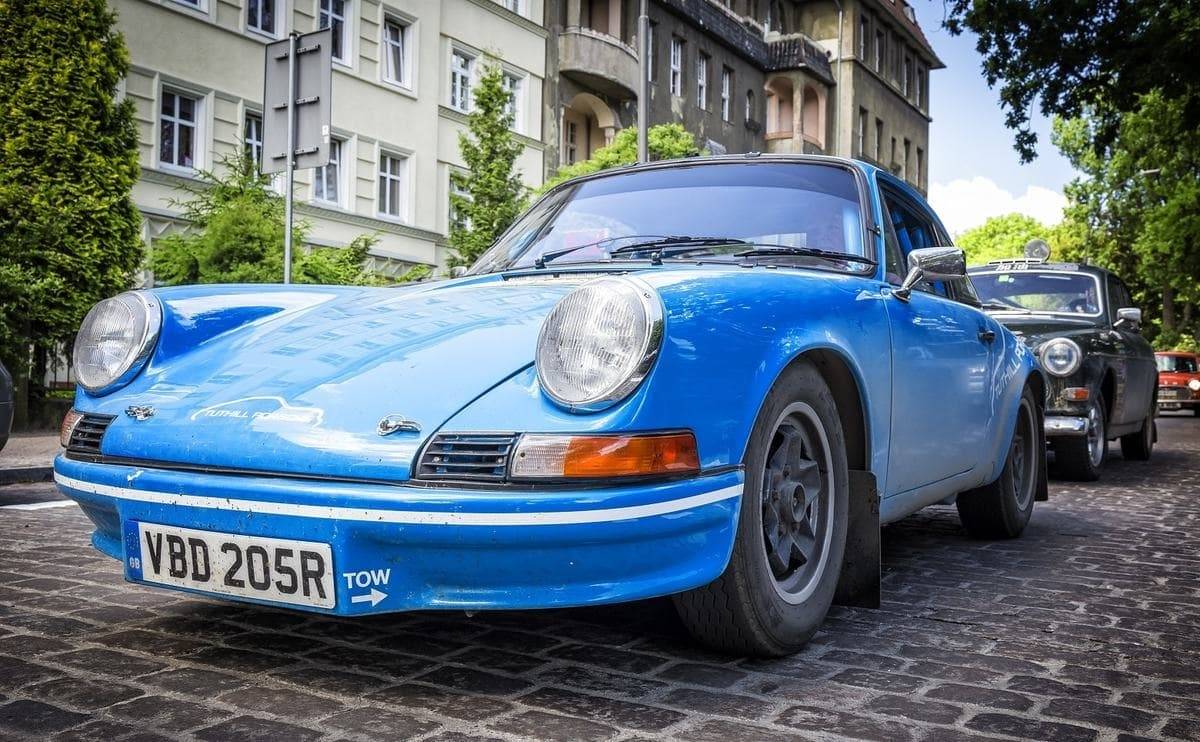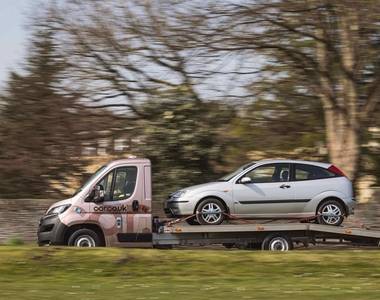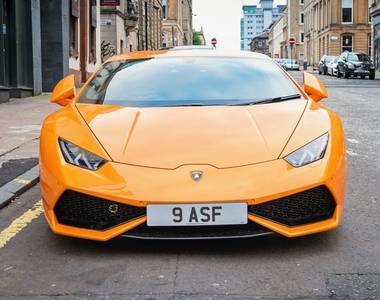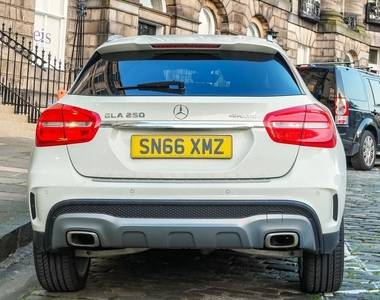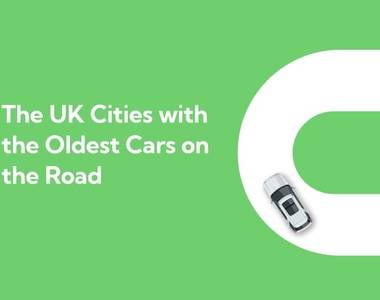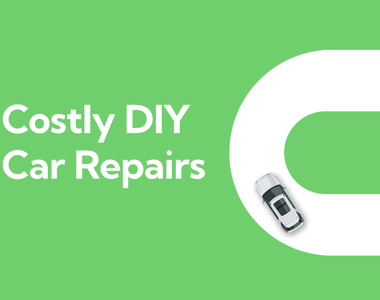Auto manufacturers have long since honed in on the car buyer’s need to personalise their brand-new cars and now offer countless combinations of features, allowing them an easy outlet where they can customise their cars at cost. For many drivers, a personalised number plate is the perfect statement of ownership and they’re willing to pay hundreds to thousands of pounds for the privilege of owning one.
The market for personalised number plates is a growth industry that sees plates both old and new sold for staggering sums dependent on demand. Since number plates were first developed back in 1904 to crack down on car crime and help the authorities track vehicles involved in accidents and incidents, they’ve been an integral part of every car’s legal road requirements. Many drivers opt to hang onto these registration plates, even when their car’s engine can no longer run. For a fee to the Driver and Vehicle Licensing Agency (DVLA), prior to scheduling any scrapping, car owners can keep their private plates and attach them to another vehicle if they choose to do so.
If you’ve ever asked yourself ‘How much is a personalised number plate?’, then you’re in the right place. In the following passages, we’ll look at the growing popularity of personal plates along with how best to acquire them. We’ll also look at a variety of factors that may affect their cost and how to track them down from specialist number plate dealers to online auctions through the DVLA.
Personalised number plates
Number plates belong to the cars that carry them and not the individuals that buy them. They are the property of the Secretary of State and when a car needs to be destroyed the plate goes with it. If your number plate is personal to you, it’s possible to keep hold of it when your car has to be written off or sold. It can be kept on a certificate or attached to a new vehicle of your choosing by contacting the DVLA and arranging this along with paying a fee which, at the time of writing, is £80.
Personalised number plates have seen a boom since the end of the 1990s. Prior to this increased popularity, if a registration was seen to spell a phrase, name or word with its characters, it was considered simply luck, as the combination was created from the vehicle’s age and original place of registration. Even during this time, traders in number plates were noting trends and popularity present in sales for certain kinds of registration numbers. Plates that were selling more successfully included shorter plate numbers with very few characters and, of course, ones which spelled or indicated certain words, names or phrases. The first ever number plate issued in Scotland is a prime example of this - bearing the characters ‘S1’, it was valued at £500,000 in 2012.
By 1989 the DVLA had worked out the trade in personalised number plates was a valuable and untapped revenue stream. They set about designing and making legal permits for different combinations of number plates set to suit the market demand for personalised registrations. Since then, the DVLA has sold over four million plates with personalised characters, making the Treasury over £2 billion.
How much is a personalised number plate?
Precisely how much a personalised number plate costs depends on multiple factors such as its length, age and specific market demand. How you purchase these personalised plates and from where will also have a bearing on price.
Personalised plates sold by the DVLA at a fixed price can set you back anything from £200 to a few thousand. However, if you opt to buy your number plate through one of its auctions you may be competing against other interested parties and the final price the registration is sold for will be the highest amount someone is willing to pay.
Number plates sold via advertisements in the classified section or by brokers tend to be extremely sought after and rare items. For these plates, five or six figure price tags are common.
As a rule, the fewer characters a personal registration has, the higher the price will be to purchase. Often such short plates indicate they’re much older, which means they are more coveted particularly by number plate hunters. The same is true of number plates that spell or resemble the spelling of popular words, phrases and names. If the name spelled on the number plates are rare themselves, this will add even further value and increase the asking price paid for them.
It’s worth bearing in mind the value of the car that the plate is attached to, as this can also have an effect on price. Expensive vehicles are often owned by wealthy individuals who are willing and have the means to pay extremely high prices for the number plate they want. A popular example of this includes any registrations with the characters 911 present. These tend to command high prices as the owners of Porsche 911 cars are often keen to acquire them.
How to get a personalised number plate
If you’re looking to secure yourself a personalised number plate, there are three main methods available for you to do so. Your first option is to buy your plate through the DVLA, either for a fixed sum or by taking part in one of their auctions. The second way is to buy from a broker or company that specialises in personalised plates. The third option open to you is to make your purchase privately.
Buying directly from the DVLA is usually the first option to go for, particularly if cost is an issue as it will avoid you having to pay any markup added by a middleman. Online you’ll find the DVLA site has an efficient search tool. It will allow you to enter different criteria and offer results to browse that meet, or come close to meeting, what you’re searching for. The results will include plates of the current style in use, which means two letters, then two numbers followed by a further three letters. The DVLA will also list plates issued before 2001 in the results. Sometimes referred to as prefix plates, these consist of a single letter, then between one and three numbers and ending in three letters.
Periodically, you’ll see number plates sold at DVLA auctions. These can be timed auctions or physical auctions where you can bid in real time, either in person or online. Timed auctions are very similar to ones used on sites like eBay where you set your maximum bid with the highest price you’re willing to pay for the plate and this remains unseen by other bidders. The system then bids automatically on your behalf until it reaches your limit. If you’ve got the highest bid, just as with a physical auction house, you win the auction and the number plate is yours.
A more expensive option than the DVLA is buying your personalised number plate via a broker as they include a mark-up. The broker will often have bought the plate directly from the DVLA to sell it on and you’ll pay for those costs too. However, buying through a broker can be a worthwhile option if you’re seeking a plate you can’t find anywhere else.
Your final option is buying your number plate from a private seller. You’ll see ads in car magazines as well as on sites online with number plates being sold by their owners. They may be priced in the advert or welcome offers. However, it’s worth remembering that you cannot use a number plate in order to make a car appear younger than it is.
How to find a personalised number plate
If you’re aware of the existence of a specific plate, but can’t see it on the DVLA website, or on any of the online brokers, then it might be worth watching the classified section in auto magazines, journals and the car supplement of weekend newspapers. However, it’s worth remembering that the number plates appearing in such advertisements are often rare and priced high accordingly.
If you’re simply looking for a personalised number plate that spells, or suggests the spelling of, a name or phrase with meaning to you, then it’s worth checking out the DVLA first followed by online companies specialising in selling number plates second. Both of these resources will offer search engines that allow you to hunt down exactly what you are looking for and offer you a wide selection of results to pick from.

